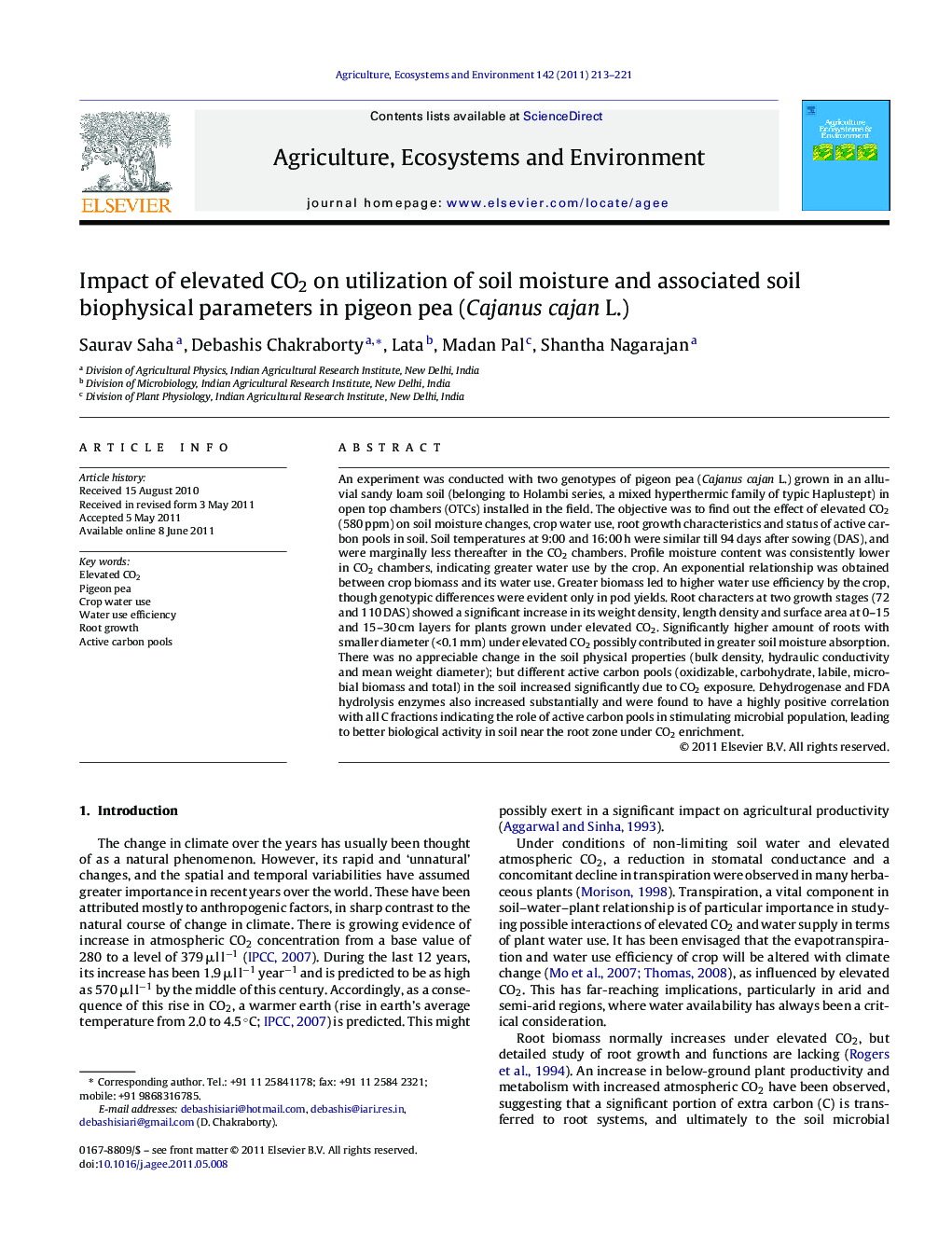| Article ID | Journal | Published Year | Pages | File Type |
|---|---|---|---|---|
| 2414667 | Agriculture, Ecosystems & Environment | 2011 | 9 Pages |
An experiment was conducted with two genotypes of pigeon pea (Cajanus cajan L.) grown in an alluvial sandy loam soil (belonging to Holambi series, a mixed hyperthermic family of typic Haplustept) in open top chambers (OTCs) installed in the field. The objective was to find out the effect of elevated CO2 (580 ppm) on soil moisture changes, crop water use, root growth characteristics and status of active carbon pools in soil. Soil temperatures at 9:00 and 16:00 h were similar till 94 days after sowing (DAS), and were marginally less thereafter in the CO2 chambers. Profile moisture content was consistently lower in CO2 chambers, indicating greater water use by the crop. An exponential relationship was obtained between crop biomass and its water use. Greater biomass led to higher water use efficiency by the crop, though genotypic differences were evident only in pod yields. Root characters at two growth stages (72 and 110 DAS) showed a significant increase in its weight density, length density and surface area at 0–15 and 15–30 cm layers for plants grown under elevated CO2. Significantly higher amount of roots with smaller diameter (<0.1 mm) under elevated CO2 possibly contributed in greater soil moisture absorption. There was no appreciable change in the soil physical properties (bulk density, hydraulic conductivity and mean weight diameter); but different active carbon pools (oxidizable, carbohydrate, labile, microbial biomass and total) in the soil increased significantly due to CO2 exposure. Dehydrogenase and FDA hydrolysis enzymes also increased substantially and were found to have a highly positive correlation with all C fractions indicating the role of active carbon pools in stimulating microbial population, leading to better biological activity in soil near the root zone under CO2 enrichment.
► Greater soil moisture utilization and higher water use efficiency in pigeon pea when exposed to elevated CO2. ► Elevated CO2 significantly increased root weight and length densities. ► Significant increase in active carbon pools in soil under elevated CO2 led to increased biological activity of rhizospheric soil.
